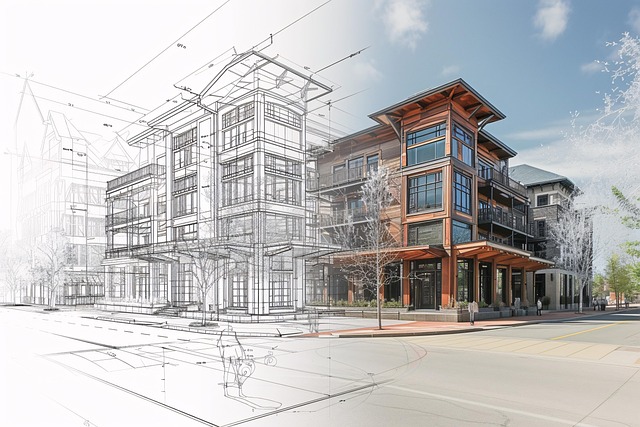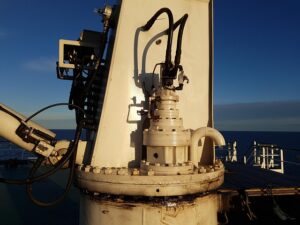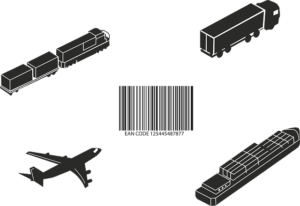Semantic Role Labeling for Smart 50 kW Combi Boiler Management
Semantic Role Labeling (SRL) is a cutting-edge NLP technique that analyzes complex interactions with…….

Semantic Role Labeling (SRL) is a cutting-edge NLP technique that analyzes complex interactions within 50 kW combi boilers, identifying key components and their roles. By understanding energy sources (natural gas or LPG), regulatory entities like thermostats, and operational agents, SRL optimizes performance metrics such as heating capacity and energy efficiency, especially in high-output boilers with condensing technology. This role-based analysis is crucial for smart home automation in large properties, aiming for ErP A ratings and minimizing environmental impact through efficient energy use. Despite challenges posed by diverse boiler models and contexts, SRL's benefits outweigh complexities, driving development of more sustainable and cost-effective heating solutions tailored to residential needs.
Semantic Role Labeling (SRL) is a powerful natural language processing (NLP) technique that identifies entities and their roles within sentences. In the context of 50 kW combi boilers, SRL plays a pivotal role in understanding complex interactions between agents (human operators, machines, or systems) and components. This article explores how SRL can map out actions, uncover critical components, and enhance the efficiency of smart heating solutions featuring 50 kW combi boilers by streamlining maintenance, diagnostics, and user experiences.
- Understanding Semantic Role Labeling (SRL) in NLP
- The Role of Agents in SRL for 50 kW Combi Boilers
- Identifying Components and Actions in Comb Boiler Systems
- Challenges and Advantages of SRL in this Domain
- Applications and Future Potential of SRL for Smart Heating Solutions
Understanding Semantic Role Labeling (SRL) in NLP

Semantic Role Labeling (SRL) is a powerful technique within Natural Language Processing (NLP) that focuses on understanding and identifying entities and their roles in sentences, providing crucial context for machine learning models. By labeling these semantic roles, we enable machines to interpret complex linguistic structures, especially when dealing with specific domains like heating systems. In the context of 50 kW combi boilers, SRL can pinpoint key components and their functions. For instance, it helps recognize that a “natural gas fired” or “LPG compatible” boiler acts as the energy source, while other entities like thermostats or control panels play regulatory roles in maintaining optimal hot water flow rate and central heating capacity.
This role-based analysis is particularly beneficial for diverse applications, including large property heating systems with multiple bathrooms. With advancements in NLP, SRL now aids in evaluating energy efficiency and environmental impact, as seen in ErP A-rated high output boilers that utilize condensing technology. By accurately labeling these roles, we enhance the potential for smart home automation, ensuring efficient operation and reduced energy consumption, thereby contributing to a more sustainable future.
The Role of Agents in SRL for 50 kW Combi Boilers

In the context of 50 kW combi boilers, agents play a pivotal role in semantic role labeling (SRL). These agents represent key entities responsible for various functions within the boiler system. For instance, an agent could denote the user interacting with the boiler, managing settings like temperature and hot water flow rate. Another agent might symbolize the boiler itself, tasked with condensing natural gas or LPG to produce high output, energy-efficient central heating for large properties with multiple bathrooms.
SRL enables a detailed understanding of how these agents contribute to the overall operation and efficiency of the 50 kW combi boiler. By identifying specific roles like fuel source management, hot water supply control, and user interaction, SRL aids in optimizing performance metrics such as central heating capacity and ErP A ratings, ensuring optimal energy use and reduced environmental impact.
Identifying Components and Actions in Comb Boiler Systems

In the context of 50 kW combi boilers, semantic role labeling (SRL) plays a pivotal role in identifying and categorizing key components and actions within the system. This advanced technique allows for a detailed understanding of the boiler’s functionality, breaking down complex processes into manageable roles. For instance, SRL can pinpoint the agent responsible for heating water, such as a combustion chamber or heat exchanger, and the corresponding action of transferring thermal energy. By assigning semantic roles, we gain insights into the specific tasks performed by various parts of the boiler, enabling more precise analysis and maintenance strategies.
Understanding these roles is crucial when considering the diverse applications of high output boilers, particularly in large properties with multiple bathrooms. The ability to distinguish between different components becomes essential for optimizing performance and energy efficiency. For example, SRL can help identify the role of condensing technology in recovering waste heat from exhaust gases, a feature common in modern natural gas fired or LPG compatible 50 kW combi boilers. This knowledge facilitates adjustments to maintain optimal hot water flow rate and central heating capacity, ensuring energy-efficient operation that aligns with ErP A ratings.
Challenges and Advantages of SRL in this Domain

Semantic Role Labeling (SRL) presents both challenges and advantages when applied to identifying agents servicing 50 kW combi boilers. One of the primary hurdles is the diverse nature of boiler models, with various manufacturers adopting different designs and functionalities, which can complicate the labeling process. Additionally, the context in which these boilers operate, such as in large properties with multiple bathrooms, introduces semantic complexities that require precise understanding of both the physical setup and the energy dynamics.
Despite these challenges, SRL offers significant advantages. By accurately identifying the roles of different components—like the boiler itself, its control systems, and associated hot water flow rate regulators—it enables detailed analysis of energy efficiency, especially when considering condensing technology in natural gas fired or LPG compatible models. This level of granularity is crucial for optimizing performance, enhancing hot water supply, and ensuring a central heating capacity that meets contemporary standards, as exemplified by ErP A-rated appliances.
Applications and Future Potential of SRL for Smart Heating Solutions

Semantic Role Labeling (SRL) has emerged as a powerful tool for understanding and analyzing complex systems like smart heating solutions. By identifying and labeling agents, actions, and their relationships within a 50 kW combi boiler system, SRL enables deeper insights into its operation and potential enhancements. This technology can play a pivotal role in optimizing the performance of high output boilers, especially in large properties with multiple bathrooms, by refining hot water flow rates and central heating capacities.
The future potential of SRL in this domain is promising, particularly with advancements in condensing technology for both natural gas fired and LPG compatible systems. As energy efficiency becomes a paramount concern, SRL-driven analyses can facilitate the development of more ErP A rated appliances, contributing to sustainable and cost-effective solutions. By uncovering new connections and possibilities, SRL paves the way for innovative smart heating technologies that cater to diverse residential needs.
Semantic Role Labeling (SRL) emerges as a powerful tool for understanding and optimizing smart heating systems, particularly focusing on 50 kW combi boilers. By identifying agents, components, and actions within these systems, SRL enables more efficient and effective maintenance, enhances overall performance, and paves the way for future advancements in smart home technology. This innovative approach has significant potential to revolutionize how we interact with and manage our heating solutions, ensuring a comfortable and sustainable living environment.







